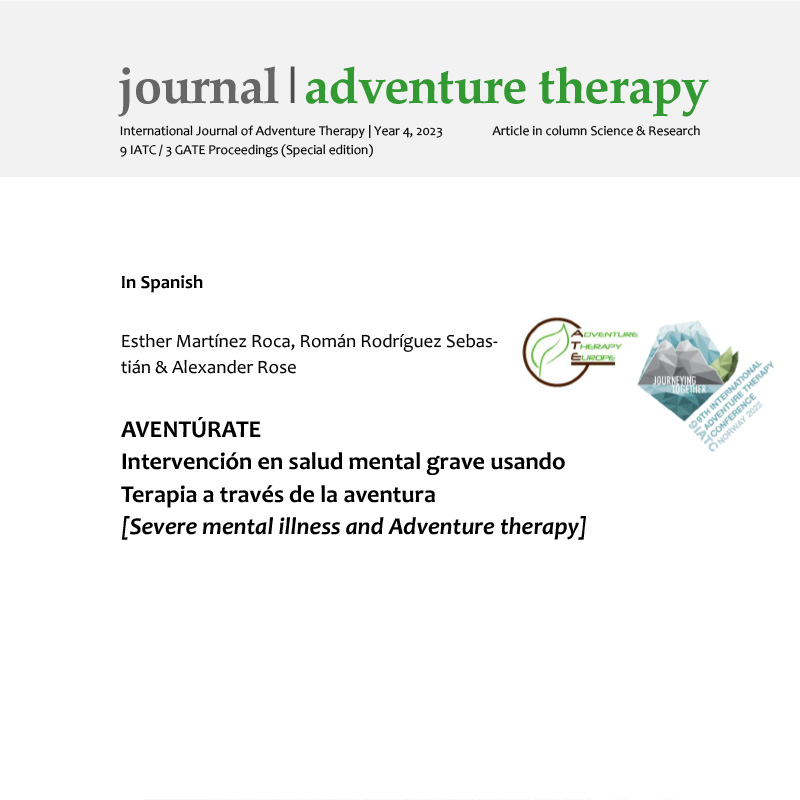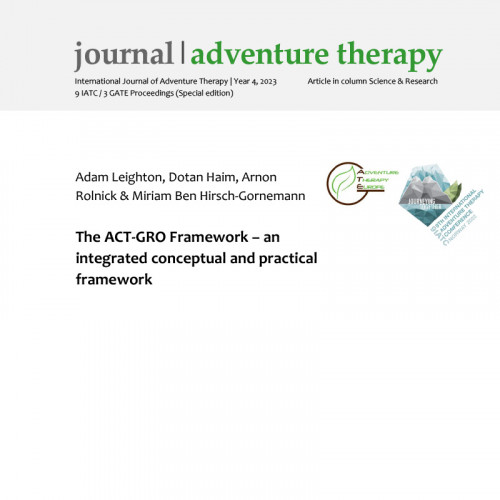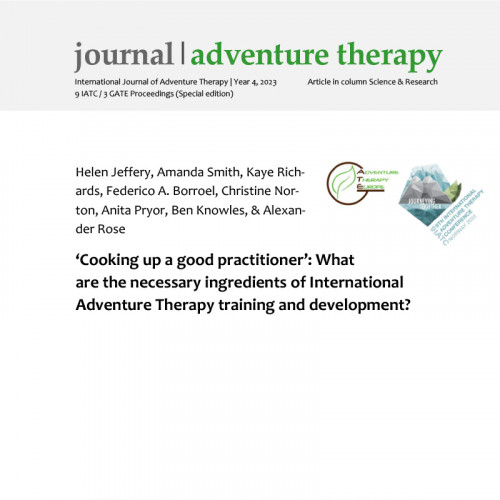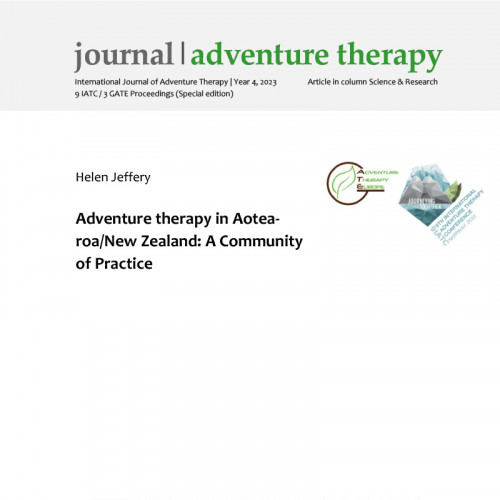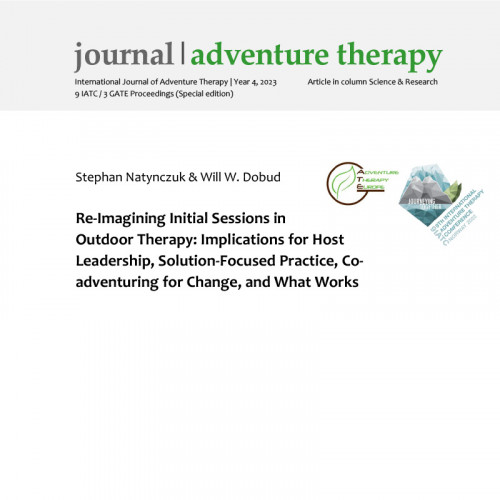Authors: Esther Martínez Roca, Román Rodríguez Sebastián & Alexander Rose
AVENTÚRATE is a co-adjuvant psychosocial rehabilitation program for people diagnosed with chronic mental illness based on Adventure Therapy. The socially responsible company Terapia Aventura designed this intervention for the regional rehabilitation center PRISMA which is located in Valencia (Spain). AVENTÚRATE welcomes a maxi-mum of 84 people between 18 and 65 years of age, with a diagnosis of severe mental illness. It is necessary that they present a stable psychological state and are not in a psychiatric crisis situation. The project addresses psychosocial aspects for patients who present deterioration in their psychosocial functioning and in their community integration. It offers a specific space that, through rehabilitative activities, facilitates the integration of participants into society while assisting and orienting their families or guardians. Adventure therapy programs are supported by scientific literature and are finding promising results like an increase in interpersonal effectiveness. The activities encourage social engagement while promoting individual coping strategies. The use of nearby facilities, resources and natural spaces has been promoted, offering alternatives to the usual work resources and health-generating sports activities. Positive change is high-lighted during sessions and transference to reflect on daily life situations which might be challenging for participants is pursued. The project had a positive impact on participants in reducing the impact caused by the consequences of the pandemic and provided tools in social skills, self-care, emotional management, support network and self-efficacy. The objectives have been partially or completely achieved and specific needs have been detected for the continuity of participant’s psychosocial rehabilitation. It is recommended to continue working on the development of participants’ autonomy, as well as their adaptation and integration in their local population. That means increasing contact with nature, sport activities and promoting a strong and supportive network. Also continuing working within and between families. Quantitative research was carried out using different mental health measurement tools and ATES scale. Scales have been used to measure anxiety, depressive symptomatology and perceived social support.
